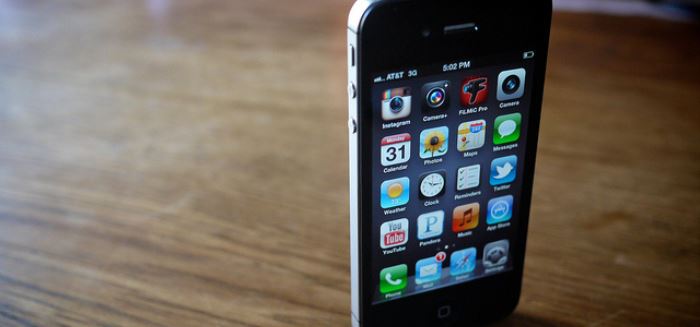Our series on the new book, Beyond the Offering Plate: A Holistic Approach to Stewardship, wraps up this week, this time with a post by yours truly. My chapter in the book considers the gifts — and challenges — of technology. Since you are all receiving this newsletter by email, you’re already part of how the Spirit might be working digitally. Click, scroll, or tap to read more.
Yours truly,
Adam Copeland, Center for Stewardship Leaders
Stewarding Your iPhone
Adam J. Copeland
It’s certainly tempting to wax cynical about cell phone technology’s effects on our lives. I sometimes get frustrated by friends who break eye contact to check their latest text message vibrating on their Apple Watch, and I’m no fan of students texting during class, but when I get frustrated, I think back to a meme. The photo that went viral on social media is of a Philadelphia commuter train circa 1955. The image shows dozens of men sporting suits, ties, and hats headed to work on the crowded train. In seat after seat, each commuter is holding up a large, printed newspaper and reading silently. The caption reads, “All this technology is making us antisocial.”
At their core, social media platforms like Facebook, Twitter, Instagram and others have to do with human relationships and how we engage with one another. There’s nothing more basic to stewardship than how we relate to God and others.
A few years ago now, Keith Anderson and Elizabeth Drescher published Click 2 Save: The Digital Ministry Bible which will soon be released in a revised edition. Early on, they remind readers that the point of using digital technologies and social media is not how many people hear your voice, but “about how you are connected in meaningful, personal ways with people across diverse networks.” Especially when it comes to ministry, digital practice “is networked and relational rather than broadcast and numerical.” That sure reminds me of stewardship!
On my better days, this frame reflects my own practices, at least when it comes to my iPhone. Rarely a day goes by when I fail to send text messages to friends and family. I’m also part of several text message groups set up so that messages we send are received by a group of friends simultaneously. We use these groups for both fun, humorous messages — such as sending cartoon avatars of ourselves with messages to one another — as well as to support one another in difficult times.
Yet, long before Facebook, John Calvin wrote, “man’s nature, so to speak, is a perpetual factory of idols.” Time has borne out the wisdom of Calvin’s description. Perhaps because of our propensity to create gods of our own making, the technologies we shape often have a particularly enchanting quality to them.
It takes a lot of willpower not to answer a ringing phone. Indeed, movie theaters wrestle with how to deal with patrons who cannot go two hours without looking at their brightly-lit phone screens, even if it’s to text friends about the film, or tweet a quick reaction to it.
Craig Detweiler warns in his book, iGods, “Idols serve our needs according to our schedule. When we call, they answer. They give us a false sense of being in control. But over time, the relationship reverses. We end up attending to their needs, centering our lives on their priorities and agendas. Most idols begin as good things…” It’s definitely possible to at the same time celebrate the gift of technology, and take care not to become so entranced by its glow that we lose perspective.
Thankfully, it doesn’t take long to find examples of hope rooted in technology. For example, Luther Seminary offers a Distributed Learning program that enables many who otherwise could not earn a theological degree a means by which to do so. I have a friend who, once a week, scrolls through his Facebook feed and offers prayers for those who appear. For him, Facebook updates have become a sort of spiritual practice. Personally, I appreciate the technological advancement of receiving a daily devotion in my email inbox early each morning, and having a Bible app on my phone.
I’ve heard of several churches that have developed liturgies for the blessing of cell phones. Such practices push us to consider how we might steward their potential for faithful use, one click at a time.
*Want to read more? A fuller version of this post appears in the new book, Beyond the Offering Plate: A Holistic Approach to Stewardship, edited by Adam Copeland. To order visit: Amazon, Westminster John Knox Press, or Barnes & Noble.
More Information
Adam J. Copeland is the director of the Center for Stewardship Leaders at Luther Seminary.

